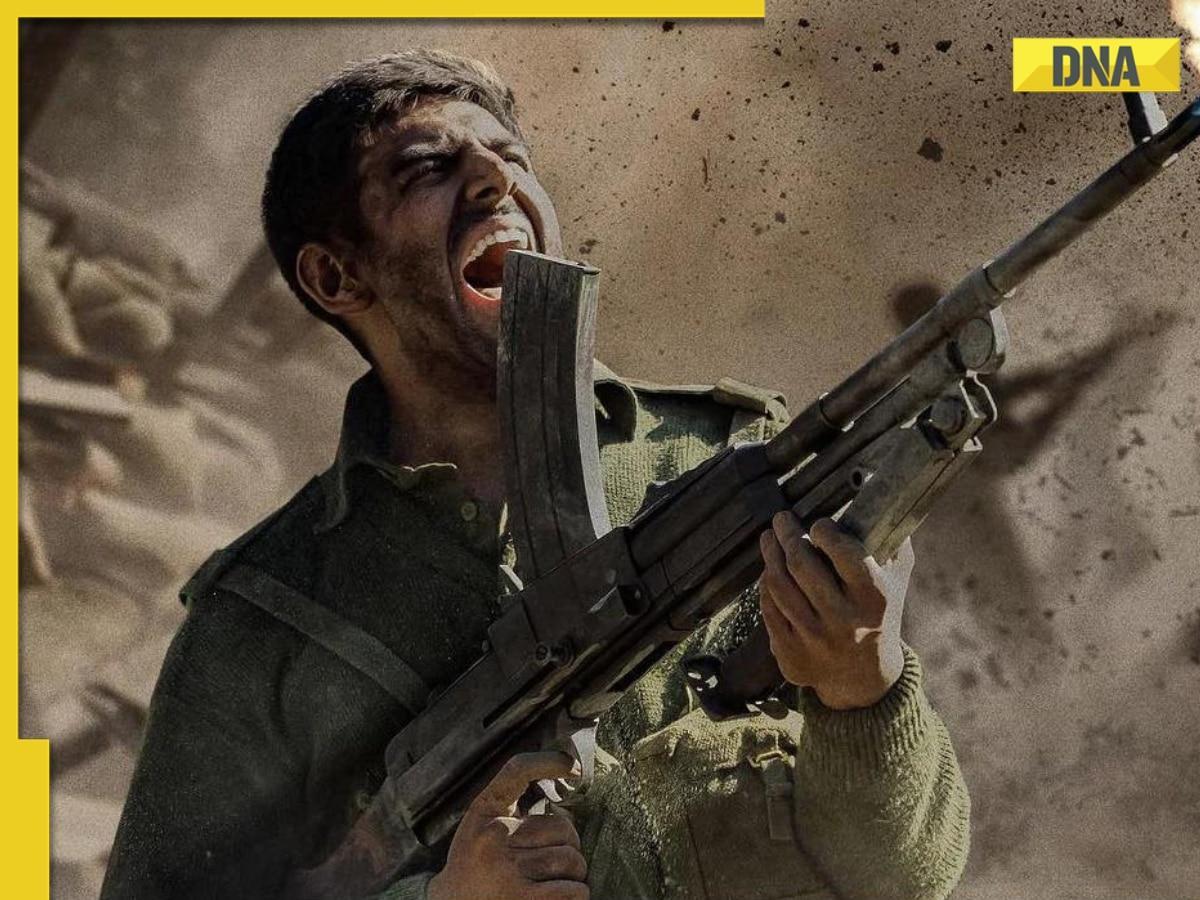
Kabir Khan’s latest cinematic creation, “Chandu Champion,” arrives in theaters with a narrative that initially seems formulaic but soon proves otherwise, capturing hearts with its blend of emotion and authenticity. This four-star rated film, starring an ensemble cast led by Kartik Aaryan, Vijay Raaz, Bhuvan Arora, Shreyas Talpade, Aniruddh Dave, Yashpal Sharma, and Sonali Kulkarni, offers more than just entertainment. It becomes a poignant homage to underdog champions, especially the para-athletes who often fly under society’s radar.
In the opening scenes, “Chandu Champion” struggles with a choppy first half-hour that feels overly dramatic and somewhat reminiscent of the sports biopic “Bhaag Milkha Bhaag.” The overly familiar narrative initially raises concerns about the film devolving into a predictable tale. However, Kabir Khan’s direction skillfully steers the movie clear of these pitfalls. He incorporates a compelling balance between realism and drama, allowing the story’s emotional resonance to shine through.
At the heart of “Chandu Champion” is the remarkable true story of Murlikant Petkar, portrayed by Kartik Aaryan. Petkar’s life journey—from a pehelwan and champion boxer in the Indian Army to a paralyzed soldier transforming into a Paralympic swimming champion—spans several decades, with Aaryan depicting him from ages 18 to 80. This biographical drama not only narrates Petkar’s indomitable spirit but also holds up a mirror to societal attitudes towards the differently-abled, highlighting how their extraordinary feats are often overlooked.
The initial editing choices could have been tighter, and the inclusion of multiple songs in quick succession seems a bit excessive. Yet, the narrative quickly courses corrects as it delves into Petkar’s transformative entry into boxing. It is here that “Chandu Champion” truly begins to soar, delivering perhaps the most authentic depiction of boxing ever seen in Hindi cinema. Kartik Aaryan’s physical transformation, alongside skillfully choreographed bouts and meticulously framed shots, lends a blend of cinematic flair and realism to the sport’s portrayal. Unlike previous Indian boxing films like “Apne” and “Toofan,” which often leaned into melodrama, “Chandu Champion” maintains a sharper focus and tone reminiscent only of Pa. Ranjith’s esteemed “Sarpatta Parambarai.”
The film’s much-anticipated eight-minute single shot sequence depicting the 1965 Indo-Pak War right before the intermission has been a highlight in discussions. While technically impressive, employing clever camera and editing tricks to create a seamless shot, it lacks the palpable urgency and chaos seen in war films like “Dunkirk” and “1917” or even epic television series like “Game of Thrones.” Despite its visual appeal, the sequence feels somewhat detached from the raw, visceral nature of real combat scenarios.
As the narrative progresses into its second half, the film gains significant composure and strength.
. Here, Kartik Aaryan’s performance reaches its zenith. He brilliantly captures Petkar’s myriad emotions—from helplessness and frustration to resilience and unwavering determination. Aaryan’s portrayal is nuanced, emoting powerfully through his eyes and body language, marking it as the pinnacle of his acting career thus far. Memorable interactions with actors like Vijay Raaz and Aniruddh Dave add depth and poignancy to the storyline, solidifying Aaryan’s status as a mature and highly capable performer.
Vijay Raaz, known for his impeccable comic timing and depth, shines as the empathetic yet stern coach. His portrayal steers clear of clichés, bringing warmth and humanity to the character in a manner only he can achieve. Aniruddh Dave also delivers a noteworthy performance despite limited screen time, and Sonali Kulkarni’s presence adds a credible layer to the narrative. Shreyas Talpade’s role, though a deviation from his usual characters, serves as a pleasant surprise, while Bhuvan Arora’s talent seems underutilized in a stereotypical sidekick role. Similarly, Rajpal Yadav’s role is relegated to a mere extended cameo, leaving much to be desired given his capabilities.
Despite these occasional drawbacks, “Chandu Champion” excels in its storytelling through other aspects. Julius Packam’s evocative background score and Sudeep Chatterjee’s brilliant cinematography synergistically recreate Petkar’s world, traversing locations from Maharashtra to Kashmir and even Germany with historical accuracy. Kabir Khan’s seamless incorporation of the Munich attacks into the narrative adds a layer of depth and authenticity to the storytelling.
The film’s ultimate triumph lies in its thematic focus—championing the cause of underdog heroes and addressing the societal biases faced by the differently-abled. “Chandu Champion” critiques the condescending ‘bechara’ syndrome that differently-abled individuals often encounter and underscores the necessity for recognition of their true potential and achievements. The life of Murlikant Petkar stands as a testament to the relentless human spirit, and the film serves as a well-deserved tribute to his legacy.
In summary, “Chandu Champion” transcends the realm of conventional biopics, emerging as a compelling narrative that inspires and educates. It makes a significant statement about the unsung heroes among us, advocating for acknowledgment and respect of differently-abled athletes who have faced adversity head-on and triumphed. Kabir Khan’s film is a call to celebrate these champions not just in sports, but in all walks of life. This is the essence of what “Chandu Champion” aims to convey.












